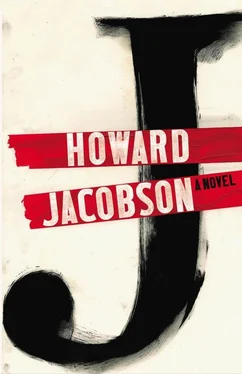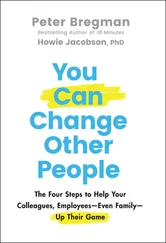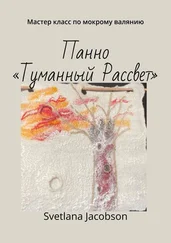‘Why would she ask for letters she doesn’t know exist?’ Sister Perpetua wondered.
Sister Agatha shrugged. ‘Why anything?’ she said.
In fealty to the memory of her own mother, Coira too disappeared from the face of the earth.
vi
‘And thus does THE GREAT PISSASTROPHE,’ Kevern mused gravely to Ailinn as they lay entwined like a pair of foundlings in each other’s arms, ‘claim another victim.’
She drew him close to her. ‘It’s more complicated than that,’ she said.
He stroked her hair, pulling it back from her forehead. He loved the broad, clear expanse of her brow. Broad brow: capacious intelligence. Broad brow: magnanimity. Broad brow: intuition, compassion, sense of humour, sense of tragedy, vulnerability. He could stroke her brow for hours at a time. How glad he was to be soothing it again. How he’d missed it in the weeks he hadn’t seen her. Broad brow: sorrow, longing, fidelity.
She hadn’t told him everything. In truth — or rather not in truth — she hadn’t told him very much. Not to start with. Long ago, in the mayhem of civil conflict her grandmother had abandoned a baby — what happened thereafter was a common tale of history repeating itself, one generation after another passing down its inheritance of shame.
He understood that, he the grandson of a displaced hunchback.
‘But you have nothing to be ashamed of,’ he said.
She wasn’t so sure. ‘It’s not a pretty story,’ she said.
He couldn’t resist saying that she, though, was a pretty story in herself.
She shook her hair, as if to shake away the thoughtless compliment.
‘It’s hard to imagine what they must have gone through, those women, abandoning a child. Only think how desperate they must have been.’
‘You are a child of sorrows,’ he told her.
He turned his head momentarily to hide his tears from her.
They irritated her. They flowed too soon. Wait till he heard all she had to tell him. What would gush from his eyes then?
She knew him well enough to follow his emotional reasoning. He would be blaming himself for all that had befallen her, and not just her but her mother, and her mother’s mother before her. Somehow or other he would be sheeting it all back to himself. His fault, everything his fault. Greedy for a share in her suffering which was no suffering when all was said and done. What had she been through? Nothing. It was those before her who had been in hell. And if it was wrong for her to appropriate what was theirs, how much more wrong was it for him. How ghoulish!
Everyone wants a piece of me, she thought, meaning Ez as well. They are thirsty so they drink of me.
Well, she had reason to be furious with Ez. Meddling on such a scale! Kevern, on the other hand, was only letting his sympathy for her overflow. Her irritation with him had its cause in her, not him, in her apprehension, in her dread of telling him all she had to tell him.
She submitted her brow to his stroking. She would have disappeared into him if she could have. Found safety inside his skin, turned back into the ribs from which irresponsible theological fantasy taught that she’d been fashioned.
But that was selfish of her. She should have been holding him. The helpmeet cradling her husband from all harm. She remembered a simple poem she had liked at school — Grow old along with me, the best is yet to be . Only it wasn’t the best she was asking him to grow old along with her in, was it? It was the worst. Not for her, for him. For him, not for her, she was full of dread.
‘So was Ez aware of your history all along?’ he wondered.
‘That depends on what you mean by “all along”. From the beginning of our friendship, or just before, yes, it would seem so. I’m only just getting to the bottom of it. But don’t blame her.’
‘I’m not.’
‘Leave it to me to do any necessary blaming. It won’t help if you crowd me into anger.’
‘I understand,’ he said. ‘But you can’t expect me not to be curious. Did she befriend you in order to find the kindest way to tell you what she knew?’
‘Something like that.’
‘So how did she come to be in possession of those letters anyway? Is she some sort of social worker?’
Crowding, Ailinn, thought. Crowding.
‘In a manner of speaking, yes,’ she said. ‘I suppose she is.’
‘You are convinced she meant well, at least?’
She hesitated. Now it was her turn to avert her head. ‘It’s all more complicated even than I’ve told you,’ she whispered, not looking at him.
In her chest, her heart was leaping like a frightened animal.
i
ESME NUSSBAUM WAS also enthralled, the first time she clapped eyes on Ailinn in the book group, by the smooth beauty of her brow.
Esme was not, as her father thought, a lesbian. His crude mistake was to suppose that everyone was sexually distinct — a choice for which, if you made it wrongly in his view, you would pay — whereas many people, Esme thought, are neither one thing nor another, by and large indifferent to the whole business of sex and gender. She numbered herself among the latter. She fell in love with people’s natures not their bodies and wanted nothing in return.
Ailinn called out something in her at once which she was happy to recognise as motherly. The girl needed, if not looking after exactly, then direction. Esme was convinced she would have felt this, and acted on it, person to person, even had she not set out to meet her armed with a set of very particular intentions as to the direction in which she wanted — no, not wanted, needed — Ailinn to go.
She was surprised by the girl’s beauty. It wasn’t that she really expected to meet someone with drooping eyes and puffy lips and large ears like the handles of a coffee cup but it had been hard for her to dispel all expectations of ugliness or, alternatively, all expectations of exoticism. But other than in the profusion of her hair, Ailinn answered to none of the descriptions with which, over the years, Esme Nussbaum had conscientiously made herself familiar. Even the girl’s lovely forehead — which certainly did not overhang — wasn’t of a different ethnic order of foreheads.
Nonetheless, she found herself, throughout their early meetings, looking out for evidence of peculiarity — not in the pejorative sense, but with regard to unaccustomed and specific habits of utterance and thought. That she found none she attributed at first to the time Ailinn and indeed her mother had spent among the nuns. It was more than sixty years ago that Coira had been dropped off at the convent orphanage, and whatever characteristics of race or belief she’d inherited from her own mother would over that period have been eradicated in her daughter. Ailinn had been swept clean. Esme had read about the eternal reluctance of families such as Rebecca’s to entrust their offspring to the care of convent orphanages and other religious charities in times of trouble, for fear that in the event of their ever being reunited with their relations they would be radically changed in outlook and theology. She didn’t doubt that had Rebecca ever again encountered her daughter or her granddaughter she would have been struck — she could not with confidence say ‘disturbed’ — by the change. But as she got to know Ailinn better she didn’t feel competent to distinguish what was natural to her from what had been acquired. And by the time the two moved to Paradise Valley she found herself thinking of Ailinn as essentially unexceptional — unusual for her beauty and the sweetness of her disposition, yes, and for her stubbornness, and maybe even her occasional moroseness, but racially — or did she mean religiously? or did she mean culturally? a young woman like any other, a young woman, indeed, in many ways similar to the woman she had been herself, at least before the motorcyclist rode into her and broke every bone in her body.
Читать дальше












